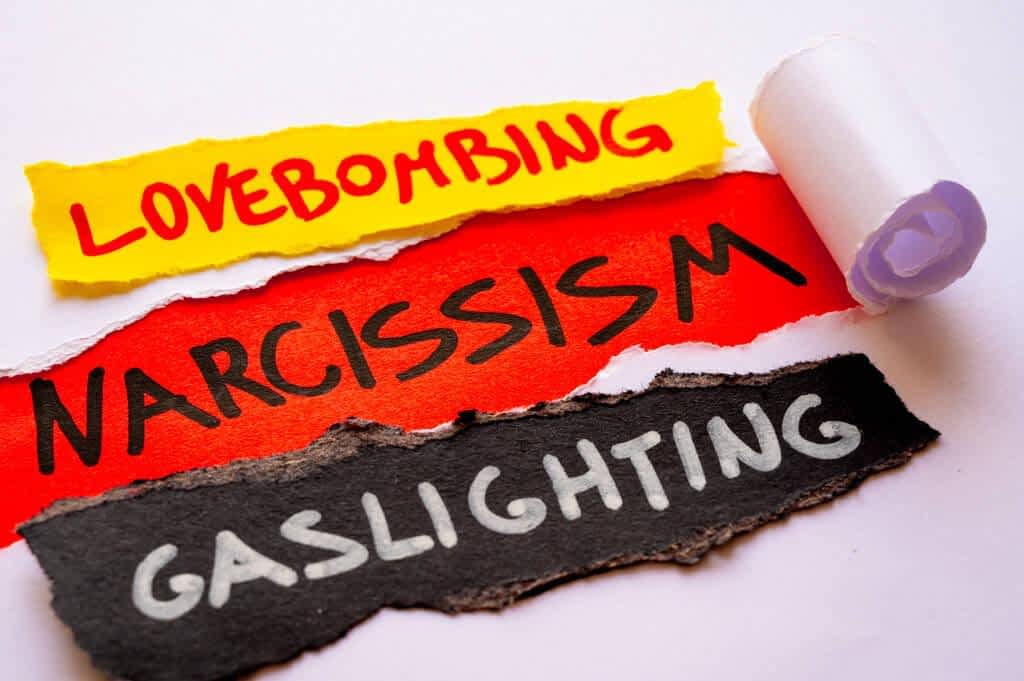5 Alarming Ways Dark Triad Traits Impact Relationships
Ever been with someone who seemed charming at first, but turned out to be controlling, cold, or just… off? There’s a name for that pattern, and it’s more common than you think. Up to 10% of people show dark triad traits. These aren’t just red flags, they’re relationship destroyers. And the worst part is they usually don’t show their true colors until you’re already in too deep.
When someone shows up with a mean streak hidden behind charm and confidence, there’s a good chance you’re dealing with more than just an A-hole. You might be dealing with a person on the Dark Triad spectrum.
These aren’t just personality quirks; they’re the kind of traits that can quietly unravel your self-worth, and leave you questioning everything. Today, we’re discussing how these dark traits show up in relationships, why they’re so dangerous, and how you can spot them before they do serious damage.
Key Highlights
- How to spot dark triad traits hiding behind charm
- Subtle manipulation tactics used in toxic relationships
- What Dark Triads look for in a woman
- The real cost of staying with someone who never takes blame
- How these traits distort trust, intimacy, and your sense of self

Understanding the Dark Triad
🚩Narcissism, the first trait of the dark triad, manifests as an excessive focus on oneself, an inflated sense of self-importance, and a lack of empathy for others. In relationships, a narcissist may seek admiration, exploit others for personal gain, and struggle to form genuine emotional connections.
🚩Machiavellianism involves manipulation, deceit, and a strategic approach to interpersonal relationships. Those with high Machiavellian traits are typically cunning, calculating, and willing to manipulate others to achieve their goals. In relationships, this can result in constant lies, betrayal, and a lack of genuine emotional involvement.
🚩Psychopathy, usually the darkest of the three features, it features traits such as impulsivity, a lack of remorse, and a low capacity for empathy. In relationships, a psychopath may display callousness, risky behaviors, and show a disregard for the well-being of others.

The Big Five Traits That People with Dark Triad Traits Tend to Lack
To really understand what makes someone with dark triad traits so difficult (and dangerous) in relationships, it helps to look at what they’re missing—specifically when it comes to the Big Five personality traits. These five are considered the core building blocks of personality: Openness, Conscientiousness, Extraversion, Agreeableness, and Neuroticism.
Now, someone with a healthy balance of these traits usually makes for a thoughtful, kind, and emotionally stable partner. But people high in dark triad traits tend to fall short in some major areas:
🧩 Low in Agreeableness
This is a big one. Agreeableness is all about compassion, kindness, and the ability to get along with others. Someone low in this trait can be cold, combative, and unwilling to compromise. That warmth you crave in a relationship is just not there. And if it is, it’s often fake or temporary – just long enough to get what they want.
🛠️ Low in Conscientiousness
Conscientious people are dependable, responsible, and goal-oriented. In contrast, someone with dark triad traits may be careless with commitments, impulsive, and willing to break rules, or hearts, if it serves their own agenda. You might feel like you’re always cleaning up their messes or picking up emotional pieces they shattered.
💔 Low Empathy, High Manipulation
Empathy isn’t part of the Big Five, but it’s deeply connected to agreeableness, and people with dark triad traits often seem incapable of truly putting themselves in someone else’s shoes. Instead, they use charm, guilt, or flattery as tools to control people, not connect with them. They may know how you’re feeling, but they just don’t care, unless it benefits them.
⚠️ What About the Other Traits?
- Openness (creativity, curiosity) and Extraversion (sociability, energy) can vary. Some dark triad types are outgoing and adventurous, while others are more reserved—it depends on the person.
- Neuroticism (emotional instability) also varies. Some are calm and calculating, while others are dramatic and reactive. The key thread, though, is how they treat others, not just how they process their own emotions.
Understanding how people with dark triad traits show up (and what they lack) can be a powerful tool for protecting yourself. A healthy relationship can’t survive on just chemistry and charm. If someone constantly makes you feel confused, manipulated, or small, don’t ignore it. Those missing traits leave real marks.

How to Spot Dark Triad Traits in Real Life
People with dark triad traits don’t walk around wearing signs that say “Hey, I’m toxic.” In fact, they’re often the most charming, magnetic people in the room, at first. That’s what makes spotting them so tricky. But if you know what to look for, you can start to see the patterns that reveal what’s really going on beneath the surface.
😏 Charm That Feels a Bit Too Slick
They know exactly what to say, how to say it, and when to say it. These types are often smooth, flirty, and seem emotionally attuned until you realize it’s more about control than connection. Charm becomes a tool, not a trait. If someone seems too good to be true and uses that charm to get what they want, be cautious.
🧊 Cold Where It Counts
One of the biggest red flags is a lack of empathy. They might say the right things but not feel them. Pay attention to how they react when someone else is hurting or needs support. If they seem annoyed by vulnerability or emotionally unavailable when it matters most, that’s not just emotional immaturity and it could be something deeper.
🕵️♀️ Lies, Half-Truths & Sketchy Stories
They twist facts, dodge accountability, and make you feel like you’re overreacting when you catch them in a lie. Manipulation and deceit are common tools for those with dark triad traits. If their words and actions never quite match up, that’s a red flag waving itself.
🎲 Always Living on the Edge
They might take reckless risks, emotionally, financially, physically, and in the bedroom without thinking twice about the impact. This could show up as committing adultery “just because,” blowing through money, or putting others in emotional or real danger with their behavior. It’s all about the thrill, not the consequences.

5 Ways Dark Triad Traits Wreck Relationships
Being in a relationship with someone who has strong traits on the dark triad spectrum isn’t just “difficult.” It can be deeply damaging, especially if you’re someone who values connection, honesty, and emotional safety. Let’s break down the ways these traits can quietly (or loudly) destroy a relationship from the inside out:
🎭 Emotional Manipulation and Control
Someone with dark triad traits is often a master manipulator. It’s gaslighting, guilt-tripping, lying, or love-bombing, and the goal is to control your perception of reality. You may start to doubt your memory, or even your ability to make decisions. That’s not love; it’s psychological warfare.
💔 Lack of Real Emotional Connection
Narcissism, one of the core dark triad traits, makes emotional intimacy almost impossible. You might open your heart, only to realize you’re in a one-way relationship—giving affection and support but rarely receiving it. These individuals struggle with empathy and often treat their partner more like an accessory than an equal.
🕵️♀️ Constant Risk of Betrayal
Machiavellian types play the long game: they’re strategic, calculated, and will say or do anything to get what they want. That includes lying, infidelity, or stringing you along. If you ever feel like someone is always ten steps ahead in a way that leaves you confused or betrayed, pay attention to that.
😓 The Emotional Burnout
Being with someone who operates from a place of manipulation, detachment, or cruelty wears you down. You might start to feel anxious all the time, emotionally drained, or like you’re constantly walking on eggshells. This kind of emotional toll can chip away at your self-esteem and your overall mental health.
🚫 Zero Accountability
One of the biggest red flags is how they never take responsibility. Everything is your fault, or someone else’s. Apologies (if you get one) are hollow, and any issue you bring up is either dismissed, flipped back on you, or turned into a drama you didn’t sign up for. This lack of accountability creates a dynamic where you’re always explaining, or fixing things that aren’t even yours to fix.
Relationships with someone who has strong dark triad traits often feel like emotional sinkholes. If you’re constantly second-guessing yourself, or exhausted by the emotional chaos, it’s not you. It’s them.

The Kind of Women People with Dark Triad Traits Look For
To be clear, this is not about blaming women. But people with dark triad traits often seek out certain qualities in a woman that make it easier for them to control or take advantage.
Here’s what they tend to look for:
✔️Admiration & Validation
They love being the center of attention. A woman who showers them with praise, admiration, or lets them lead the relationship without question can seem like the perfect match—for them. But it’s rarely mutual.
✔️Empathy & Trust
These traits are beautiful and essential in healthy love, but they can be exploited by someone with dark motives. A kind, trusting woman is easier to manipulate emotionally, especially if she gives the benefit of the doubt.
✔️Status or Social Clout
If you have strong social connections, success, or a high-status job, they may see you as a way to boost their own image. It’s not about loving you—it’s about what you represent.

How Women Can Protect Themselves from Dark Triad Types
These traits can be hard to spot early on, so prevention is more about self-trust and boundaries than changing who you are. Here’s how to protect yourself:
✨Learn What to Look For
The more you know about dark triad traits, the better you’ll be at spotting manipulation, gaslighting, and love bombing before things go too far.
✨Set Boundaries Early—and Keep Them
Be clear about what you will and won’t tolerate in a relationship. Someone who respects you will honor those lines. Someone with dark traits will test them or ignore them completely.
✨Listen to Your Gut
If something feels off, it probably is. Don’t brush off red flags or weird gut feelings. They exist for a reason.
✨Lean on Your People
Talk to your trusted friends or family when you’re unsure about someone. Outsiders often see what you can’t, especially if you’re caught up in the emotional fog.
✨Get Help When You Need It
If you’ve been manipulated, hurt, or emotionally abused, therapy can be life-changing. You don’t have to figure this out alone.

Wrapping Up
Relationships shaped by dark triad traits rarely feel safe, supportive, or mutual. That’s not a flaw in you. It’s a feature of their behavior. Recognizing the patterns of manipulation, emotional detachment, and blame-shifting isn’t labeling someone – it’s protecting your sanity. The more aware you become of these traits, the less likely you are to get tangled in someone else’s chaos. Trust your gut, and know that real love doesn’t feel draining, or like a guessing game.

Thank you for reading this post, don't forget to subscribe!







